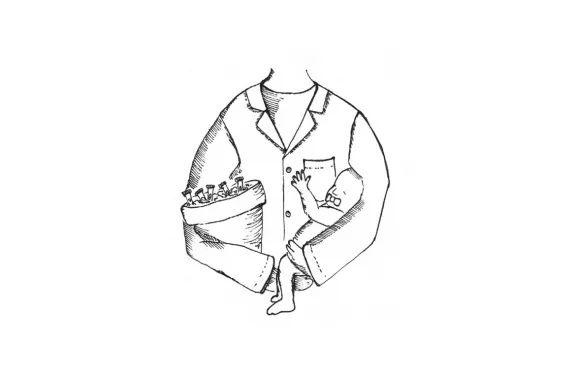
Science Mom: Gaining That Competitive Edge
There’s an National Public Radio podcast called Freakonomics Radio that I really enjoy listening to while doing cell culture. In the episode titled, “The Economist’s Guide to Parenting,” a panel of economists considered some provocative aspects of parenting.
One of the things that caught my attention was the research presented by Valerie Ramey, a professor of economics at UC San Diego. Together with her husband, Garey Ramey, they co-authored an article titled “The Rug Rat Race” (Brookings Papers on Economic Activity), in which they analyzed data from the Bureau of Labor Statistics’ “America Time Use Survey.”
They found that in the 1980s, college-educated mothers spent an average of 13 hours per week caring for their children. However, today that number is 22 hours per week. That’s a 70 percent increase.
What’s puzzling about this increase is that women are also making much more money than they did in the 1980s. For these higher-earning mothers, the opportunity cost of not working can be substantial.
So why would highly educated mothers who are receiving greater returns from paid employment be increasing the time they spend on caring for their children?
Several explanations have been proposed, including safety concerns, greater enjoyment of child care and more flexible work schedules. The Rameys evaluated these hypotheses and found that they were not consistent with the data.
Instead they offer a different explanation — preparing to send kids to college. Parents (particularly college-educated mothers) are spending more time on child care because of the perceived return on children attending good colleges. And it’s hard to argue with the fact that a good college education comes with many benefits.
Economists have estimated that every extra year of education is worth an 8 percent increase to your annual earnings for the rest of your life. (I’m not sure whether this still applies to PhD students who take 10 years to graduate.)
At any rate, the dilemma is that college admittance is much more competitive than it used to be. Nowadays, in order to get into a good college, you have to come across as well-rounded. This means participating in lots of extra-curricular activities. That’s where “The Rug Rat Race” comes in.
The Rameys found that parents were spending added time shuttling their children to activities that would look good on a college application. Valerie Ramey admits she herself was also guilty of doing this. Her children were constantly busy with horseback riding, Brownies and softball; until one day when she realized that her obsessive parenting was making her unhappy.
I can relate to feeling the need to give my child a competitive edge. Even though my child is only 2 years old, he has already been enrolled in a number of classes, including music and dance, gymnastics and swimming. I wouldn’t consider myself an obsessive parent. My kid only takes one class at a time, and we only do classes because they are a fun way for our family to spend time together.
However, if I wanted to be an obsessive parent, San Francisco would be a perfect place to be. There are plenty of activities available that are geared towards toddlers, including art, dance, yoga, pre-school prep, bilingual classes, story time, soccer, basketball, baseball and more. These are classes for 2-year-olds!
In talking to parents who have their kids enrolled in multiple classes, it really seems like a special kind of torture for both the parent and child. Neither appears to be particularly happy about constantly having to bounce from one class to another.
Obviously, a happier and less stressed parent is going to a better parent. So, is all this extra time spent on obsessive parenting making parents unhappy in general?
There have been countless studies on the happiness of parents, and they often seem to have contradictory findings. Recently, results of a study by the Pew Research Center indicated that parents find “much more meaning in the time spent with children than in the time spent at work.”
However, they also show that parents consider “caring for their children to be much more exhausting than the work they do for pay.”
Personally, I have to agree with this study. When I’m at home with my kid I feel more fulfilled, but I’m also dead tired. When I’m in lab, I’m happy (and less exhausted), but I’m also aware that my life is more meaningful than the results of my luciferase assay. In that regard, I think being a parent has given me a broader perspective in life.
Are parents less happy? It’s possible.
Do I really care? No, not so much.


